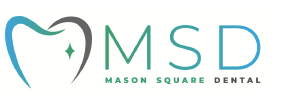Millions of Australian adults snore. While for many it causes no significant medical problems, for some it may indicate a more serious condition called Obstructive Sleep Apnoea. This can lead to heart disease, increased blood pressure, or even stroke or heart attack.
Obstructive Sleep Apnoea (OSA) is caused when the soft tissues at the back of the throat relax too much, or collapse and obstruct the airways. These interruptions to breathing may occur many times a night, with each episode lasting from seconds to minutes.
Signs and symptoms of OSA:
- tiredness on waking
- excessive daytime sleepiness
- choking/gasping during sleep
- sore, dry throat on waking
- morning headache
- poor concentration
- memory deterioration
- irritability and personality changes
- decrease in job performance
- anxiety or depression
Diagnosis and assessment of OSA
This is important so the most effective treatment can be offered. People who snore should be assessed by a sleep physician, who can determine the severity of their snoring or OSA. In cases of simple snoring or mild to moderate OSA, a dental appliance may be recommended. In severe OSA, a patient will require more complex treatment, including the use of CPAP (Continuous Positive Airway Pressure).
Here at MSD, we are trained in oral appliance therapy which can treat sleeping and mild to moderate sleep apnoea.
Worn during sleep, the appliance holds the airway open by bringing the lower jaw forward. These devices have been found to help 95% of patients with snoring, and 80% of patients with OSA.
While these success rates are exciting, there can be complications. These include:
- discomfort around the teeth
- Discomfort in the temperomandibular joint (TMJ)
- excessive salivation, or alternately dry mouth
- irritation to the soft tissues of the mouth
- changes to the bite – these are usually minor, but can be significant.


